Vietnam is a magnet for digital nomads, and for good reason. With its jaw-dropping landscapes, famously delicious food, and incredibly low cost of living, it’s a paradise for anyone looking to work remotely. But what about the visa situation?
While Vietnam has not yet launched an official “Digital Nomad Visa,” don’t let that stop you. It remains one of the most accessible and welcoming countries in Southeast Asia for remote workers. The key is understanding how to use the existing visa options to create your own de facto Vietnam Digital Nomad Visa.
This guide Onward Free will freely walk you through everything you need to know, from choosing the right visa to navigating daily life in this beautiful country.
Vietnam Digital Nomad Visa Quick Summary
Although Vietnam does not yet offer a dedicated Vietnam Digital Nomad Visa, it is a top-tier destination for remote workers who use existing visa pathways. The most popular choice is the 90-day multiple-entry tourist e-Visa, which costs $25 USD. Most nomads use this visa and perform “visa runs” to extend their stay.
For entry, proof of an onward flight is typically required, which is where services like OnwardFree.com become essential. While business or investor visas are also options, they are less common for those pursuing the Vietnam Digital Nomad Visa lifestyle. With a low cost of living and vibrant communities, Vietnam is highly attractive. Nomads should also be aware that staying over 183 days in a year may result in tax residency.

What is the Vietnam Digital Nomad Visa?
It’s important to clarify that Vietnam does not currently offer an official visa specifically named the Vietnam Digital Nomad Visa. Instead, the term Vietnam Digital Nomad Visa is used by the remote work community to describe the method of using existing visa options—primarily the 90-day tourist e-Visa—to live and work in the country for an extended period.
This strategy often involves performing “visa runs” every three months to renew the stay. While the government has expressed interest in creating a formal Vietnam Digital Nomad Visa for remote workers in the future, for now, digital nomads rely on these established and widely used tourist visa pathways.
Best Visa Options for the Vietnam Digital Nomad Visa
Since there’s no specific visa for remote workers, nomads rely on a few other types. Here’s a breakdown of the most common ones that form the basis of the Vietnam Digital Nomad Visa strategy.
Tourist e-Visa (DL)
This is the golden ticket for 99% of digital nomads and the foundation of the current Vietnam Digital Nomad Visa strategy. In August 2023, Vietnam launched a generous new e-Visa that has been a game-changer.
- Duration: 90 days.
- Entries: Multiple entries allowed. You can leave and re-enter Vietnam as many times as you want within the 90-day period.
- The “Visa Run”: When your 90 days are nearly up, you can simply leave Vietnam (often to a neighboring country like Thailand, Laos, or Cambodia for a day or two) and re-enter on a new 90-day e-Visa. This process is repeatable, allowing for long-term stays.
- Crucial Requirement: To board your flight to Vietnam and to pass through immigration smoothly, you will almost always be asked to show proof of an onward flight. Instead of buying an expensive, inflexible ticket you don’t plan to use, you can get a legitimate, verifiable onward ticket from OnwardFree.com for just $10. It’s the smartest way to meet this requirement without wasting money.
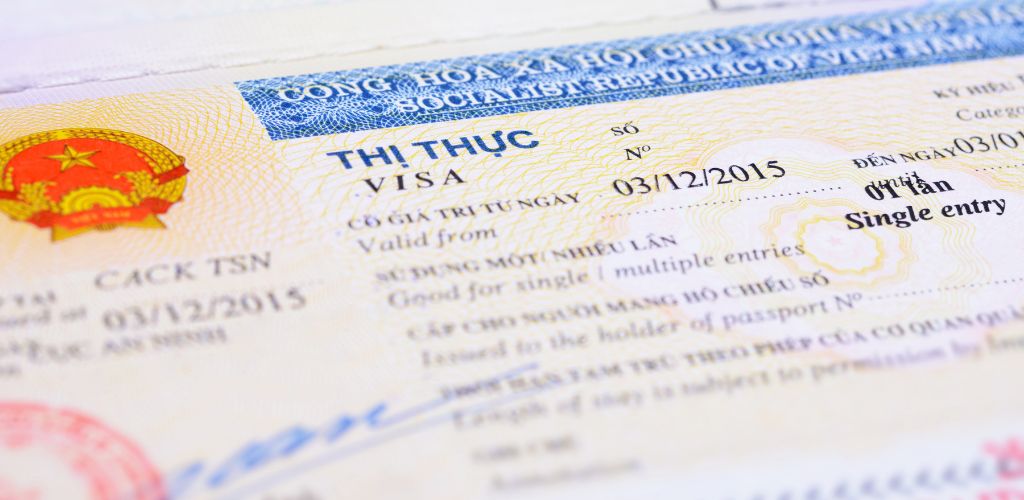
Business Visa (DN1/DN2)
This option is for foreigners working with Vietnamese companies or partners. It’s more complex as it requires a sponsorship or invitation letter from a business entity in Vietnam, making it less practical for those pursuing the typical Vietnam Digital Nomad Visa lifestyle.
Investor Visa (DT4)
The investor visa is designed for foreigners who are establishing a business or contributing capital to a company in Vietnam. It requires a significant minimum investment (typically starting from around $50,000 USD) and is not suitable for the average person seeking a Vietnam Digital Nomad Visa.
Vietnam Digital Nomad Visa Requirements & Eligibility
To ensure clarity, the requirements and eligibility criteria detailed below are specifically for the 90-day Tourist e-Visa, which forms the basis of the Vietnam Digital Nomad Visa. As this is the most common and straightforward option, we will focus on this pathway.
- Valid Passport: Your passport must be valid for at least 6 months from your date of entry.
- Passport Photo: A digital passport-style photo (4×6, white background, no glasses).
- Passport Data Page: A clear scan or photo of your passport’s information page.
- Valid Email Address: For receiving visa correspondence and your approved e-Visa.
- International Card: A credit or debit card to pay the $25 USD application fee.
- Temporary Address: You’ll need to provide an address for your first night’s stay in Vietnam (your hotel or Airbnb address is fine).
- Proof of Onward Travel: While not required for the online application itself, it is essential for your actual travel day.
How to Apply for a Vietnam Digital Nomad Visa
Applying for the e-Visa, the core of the Vietnam Digital Nomad Visa process, is refreshingly simple, as the entire process is handled online through an official government portal. This straightforward system eliminates the need for embassy visits and complicated paperwork, making it highly accessible for travelers.
- Go to the Official Portal: Use the official Vietnam Immigration Department e-Visa website: https://evisa.xuatnhapcanh.gov.vn/. Avoid third-party sites that charge extra fees.
- Fill Out the Form: Carefully enter your personal information, travel dates, and entry/exit points. Upload your passport photo and data page scan.
- Pay the Fee: Pay the $25 USD fee with your international credit or debit card.
- Wait for Approval: Processing typically takes 3-5 business days. You will receive an email with a link to download your e-Visa PDF.
- Print Your e-Visa: Print a copy of the e-Visa to present at the airport and upon arrival in Vietnam.
- Book Your Onward Ticket: Before you fly, make sure to get your proof of onward travel from OnwardFree.com to ensure a smooth check-in process with your airline.

Why Choose Vietnam for Digital Nomadism?
Beyond the simple visa process, Vietnam offers an unparalleled quality of life that consistently places it among the top destinations for remote workers worldwide. The straightforward nature of the unofficial Vietnam Digital Nomad Visa process is a major draw.
- Affordable Living: Your money goes a long way here. From street food to accommodation, Vietnam is one of the most budget-friendly destinations.
- High-Speed Internet: Major cities and tourist hubs have reliable and fast fiber-optic internet, with 4G/5G widely available everywhere else.
- Vibrant Community: There are large, active communities of expats and digital nomads, making it easy to network and make friends.
- Stunning Scenery: From the limestone karsts of Ha Long Bay to the mountains of Sapa and the beaches of Da Nang, the travel opportunities are endless.
- Incredible Food: Vietnamese cuisine is world-famous for being fresh, healthy, and delicious.
Taxes for Digital Nomads in Vietnam
Understanding the tax implications is crucial for anyone staying long-term with a Vietnam Digital Nomad Visa. Vietnam’s tax law states that if you reside in the country for 183 days or more within a calendar year, you are considered a tax resident. This means you are technically liable to pay Vietnamese income tax on your worldwide income. Rates are progressive, from 5% to 35%. Most nomads who stay long-term manage this by carefully tracking their days in the country to stay under the 183-day threshold.
Tips for Traveling in Vietnam Smoothly for Tourists
Navigating a new country comes with its own set of challenges, but a little preparation goes a long way. To help you settle in and make the most of your time, here are some essential tips for living and working in Vietnam.
Cost Of Living In Vietnam
Vietnam is famous for its low cost of living. A comfortable lifestyle is achievable on a modest budget, but costs can vary depending on the city and your personal spending habits. Here is a breakdown of typical costs:
| Category | Item | Cost (USD) |
| Accommodation | Rent (Monthly) | $220 – $330 |
| Hotel (Nightly) | $22 – $55 | |
| BnB (Nightly) | Around $17 | |
| Food | Restaurant Meal | $5.50 – $16.50 |
| Groceries (Monthly) | $110 – $165 per person | |
| Fast Food | $3.30 – $5.50 | |
| Transports | Train | Around $9 per 100km |
| Bus | Around $0.55 per trip | |
| Taxi | $0.60 – $1.10 per km | |
| Car Rental (Daily) | $33 – $55 | |
| Domestic Flight | $44 – $110 | |
| Leisure | Day Excursion | $17 – $33 |
| Nightlife | $5.50 – $22 | |
| Museum / Attractions | $2 – $5.50 | |
| Outdoor Activities | $22 – $33 |
Popular Digital Nomad Hotspots (Cities) In Vietnam
Vietnam offers a diverse range of cities that cater to every type of digital nomad, from bustling metropolises to charming coastal towns. Each hotspot has its own unique character, community, and set of advantages. Here are some of the most popular choices for remote workers.
- Da Nang: Often called the best nomad city in Vietnam. It offers a perfect mix of a modern city, beautiful beaches, and a relaxed lifestyle.
- Ho Chi Minh City (Saigon): The country’s largest city. A chaotic, high-energy metropolis with the best nightlife, international food scene, and networking opportunities.
- Hanoi: The charming capital. Known for its rich history, beautiful Old Quarter, and countless coffee shops, offering a more traditional Vietnamese experience.
- Hoi An: A UNESCO World Heritage site famous for its lantern-lit ancient town. It offers a quieter, more artistic atmosphere just a short drive from Da Nang.
- Nha Trang: A bustling coastal city known for its long, sandy beaches, clear waters, and lively nightlife. It’s a popular spot for diving and water sports enthusiasts.
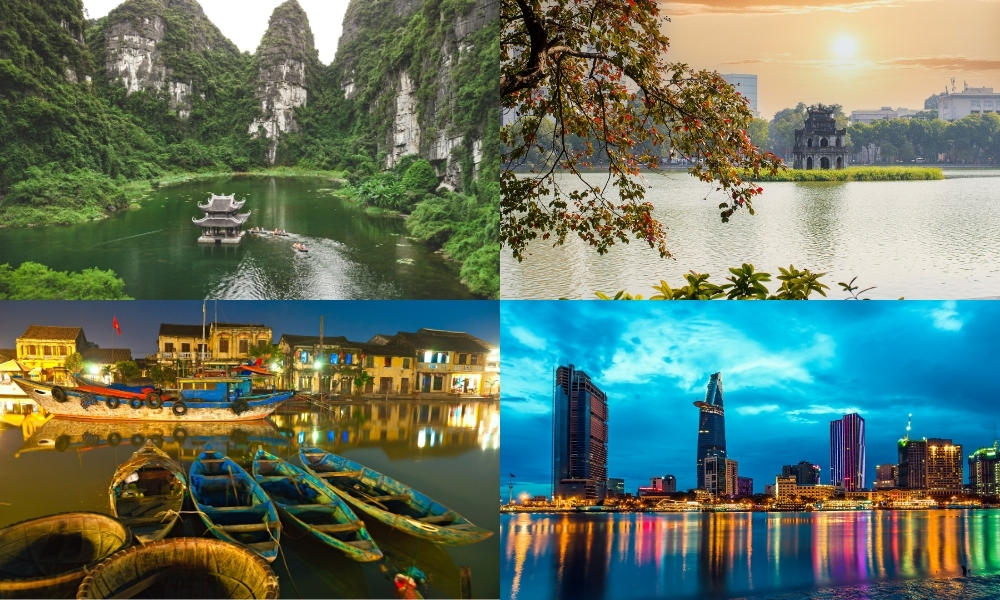
Coworking Communities In Vietnam
Vietnam has a thriving digital nomad community with numerous coworking and coliving spaces available in major cities like Ho Chi Minh City, Hanoi, and Da Nang. These spaces provide a productive work environment and offer opportunities to connect with like-minded individuals.
Some popular options include Serepok and CirCO Hoang Dieu in Ho Chi Minh City, eSpace Coworking and HanoiHub in Hanoi, and Enouvo Space in Da Nang. These coworking spaces offer more than just a place to work; they provide a sense of community and opportunities for networking, making them invaluable for digital nomads looking to connect and thrive in Vietnam.
Is There Digital Banking In Vietnam?
While opening a local bank account on a tourist visa is difficult, managing your finances is easy.
- International Banks: Services like Wise and Revolut are widely used by nomads to hold Vietnamese Dong and reduce conversion fees.
- E-Wallets: Apps like MoMo, ZaloPay, and GrabPay are essential for cashless payments for everything from street food vendors to utility bills. You can easily top them up with a Wise or Revolut account.

Is Vietnam Safe for Digital Nomads?
Vietnam is widely regarded as an exceptionally safe destination for both travelers and expatriates. The country boasts a very low rate of violent crime, allowing for a generally peaceful experience. While it’s always wise to be mindful of your belongings to prevent petty theft like bag or phone snatching, particularly in bustling urban centers, the overall atmosphere is secure. Furthermore, the local population is known for being remarkably friendly, honest, and welcoming, which significantly contributes to the feeling of safety and comfort for foreigners.
Conclusion
Vietnam is an S-tier destination for digital nomads. The lack of an official Vietnam Digital Nomad Visa is barely a hurdle thanks to the fantastic 90-day e-Visa system. By understanding the process and preparing properly, you can enjoy a long-term stay with ease. For more details about travel, navigate to Blog Onwardfree.com. Onward Free is always honored to accompany you on every trip!

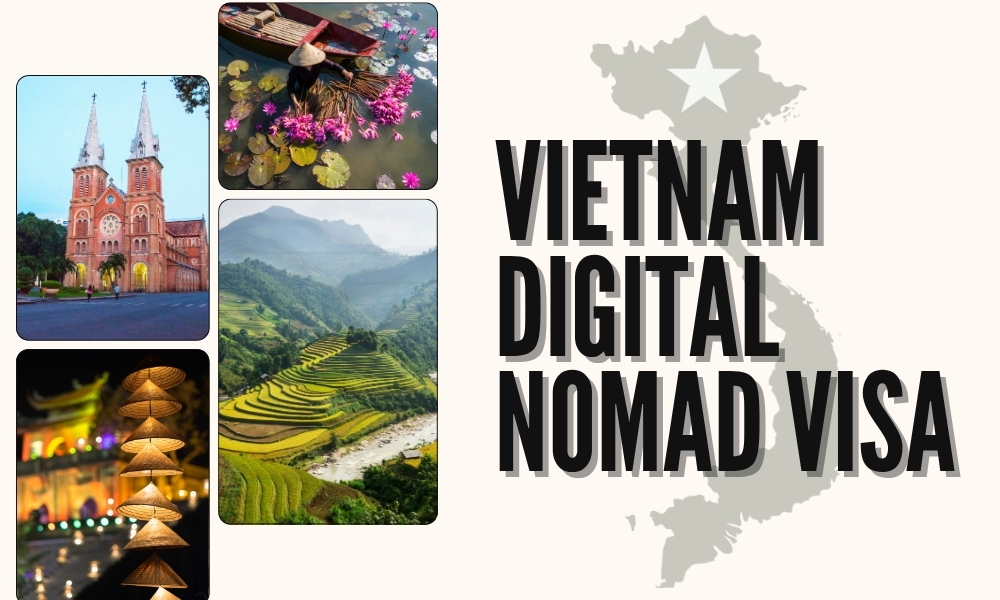

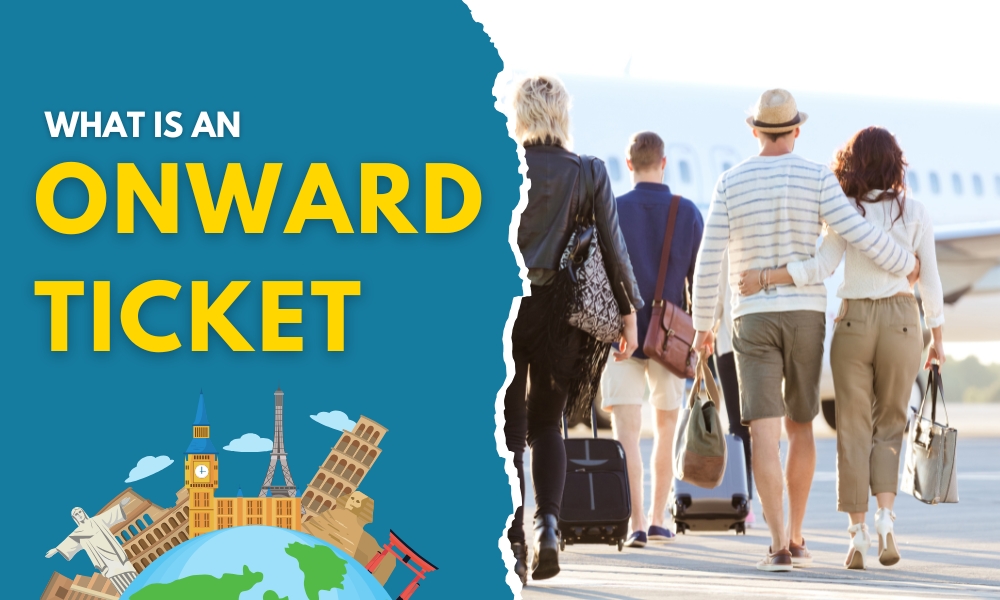

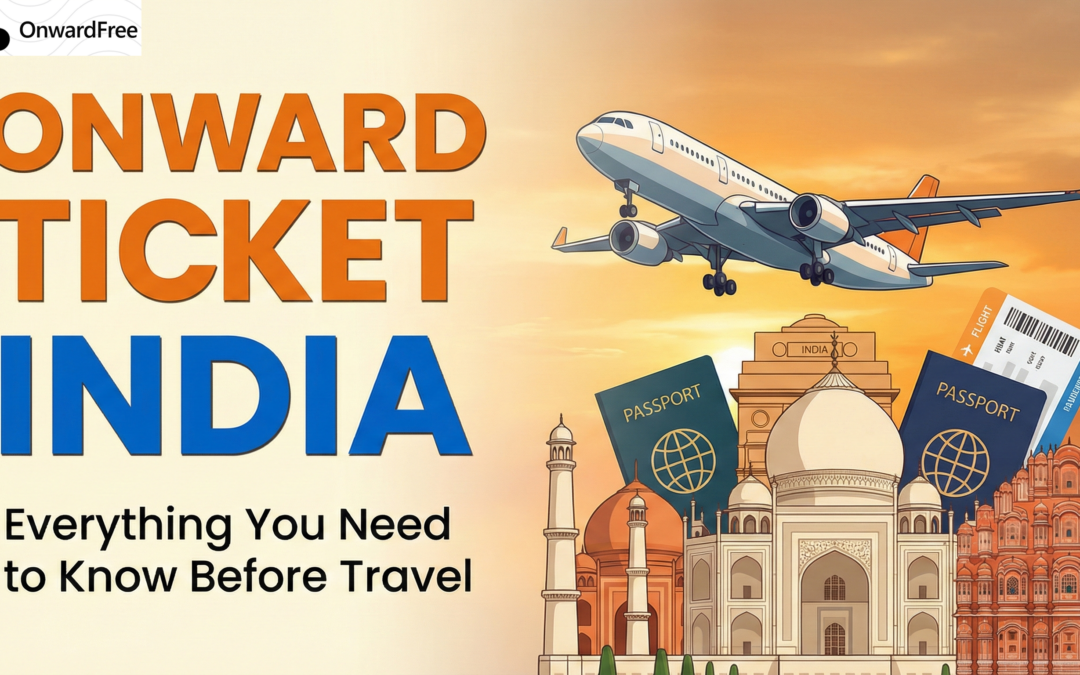
0 Comments